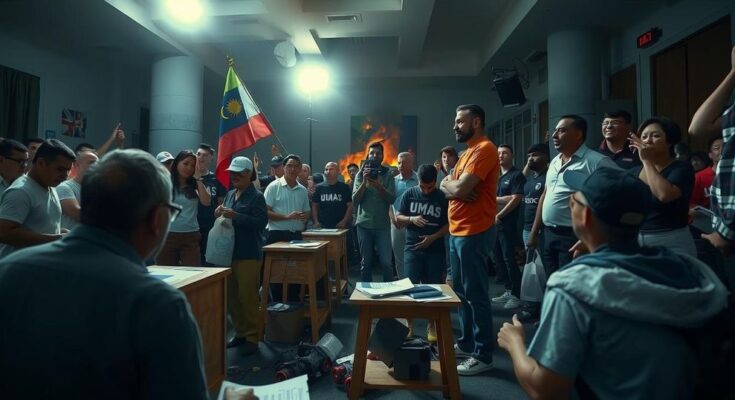Uruguay’s recent elections saw the progressive Broad Front reassert its authority with Yamandú Orsi defeating Álvaro Delgado in a runoff. Orsi’s success highlights a shift in coalitional strategies addressing urban-rural divides amid high approval ratings for the outgoing president. Concurrently, Chilean President Gabriel Boric is engulfed in scandal over allegations of sexual misconduct, impacting his political standing. Meanwhile, Brazil continues to boast its football supremacy in South America, contributing to the continent’s rich cultural tapestry.
The recent elections in Uruguay witnessed the progressive Broad Front reclaiming leadership as Yamandú Orsi triumphed over conservative candidate Álvaro Delgado with a compelling 52-48 margin in the runoff vote. This victory is noteworthy, particularly as it occurs in the wake of high approval ratings for outgoing center-right President Luis Lacalle Pou, who could not seek reelection due to constitutional restrictions. Orsi’s strategy effectively resonated with voters across urban and rural divides, suggesting a model for other factions battling against globally ascendant right-wing movements.
In Chile, President Gabriel Boric faces serious allegations of sexual misconduct that have incited significant public outcry, potentially impacting his administration. In Brazil, the country’s dominance in football continues to spark national pride, amidst discussions about South America’s evolving sports landscape. These events underscore the dynamic political and social climate in Latin America and the increasing interconnectedness of political, cultural, and economic narratives in the region.
The elections in Uruguay are pivotal as they signify a shift in political control back to the progressive Broad Front after a period of conservative governance. The political landscape in many Latin American countries, including Chile and Brazil, remains charged with controversies that highlight the varying degrees of public trust and the role of leadership. The need for coalitions to address the divide between urban and rural populations is a recurring theme, reflecting deeper societal issues that transcend electoral cycles and require comprehensive strategies for resolution.
In conclusion, the election of Yamandú Orsi marks a significant reclamation of power by Uruguay’s Broad Front, demonstrating the potential for progressive coalitions to successfully engage with voters across the rural-urban divide. Concurrently, Gabriel Boric’s facing of serious allegations signals challenges that can emerge unexpectedly in political leadership, further complicating the regional narrative of governance and public trust. These developments collectively emphasize the evolving political dynamics in Latin America, where strategies must adapt to diverse voter bases and emerging issues.
Original Source: brazilian.report




